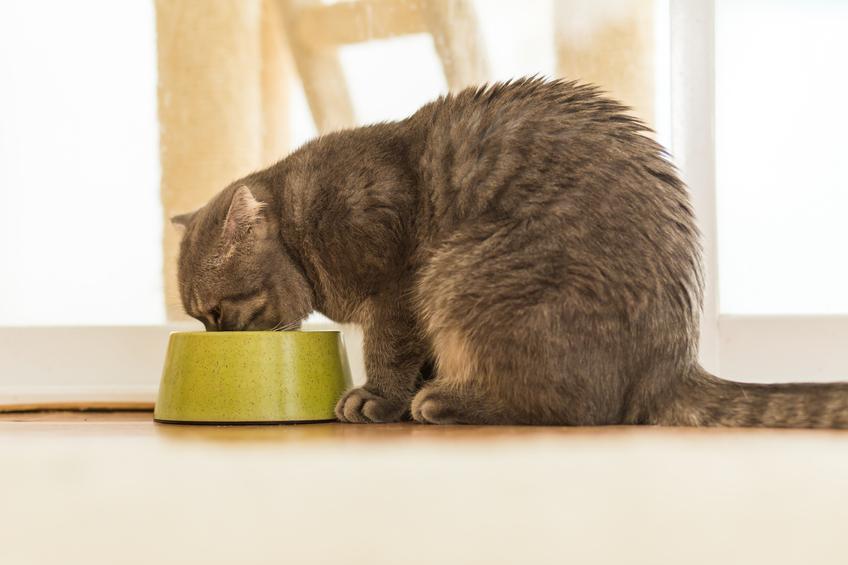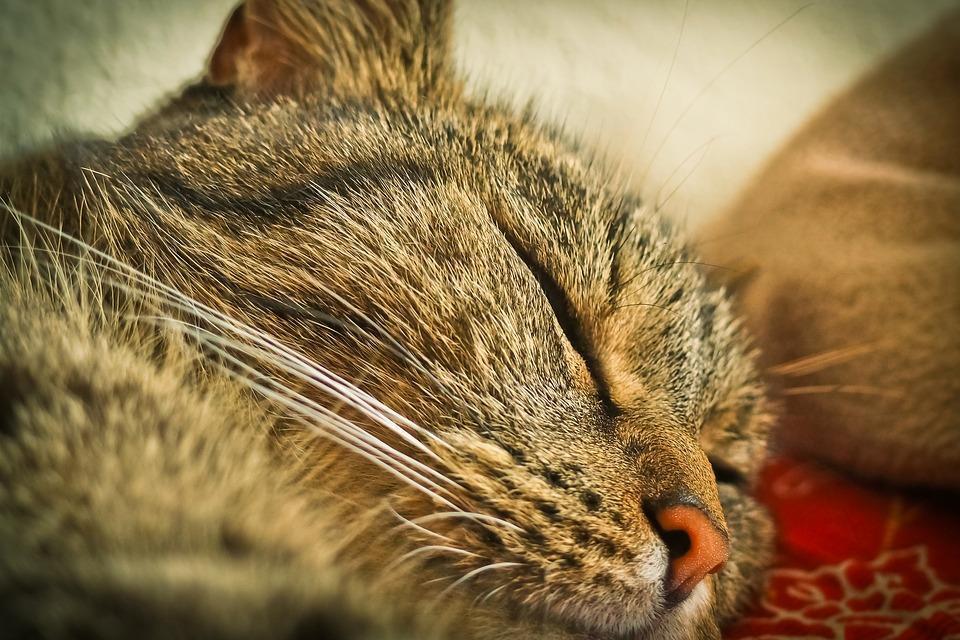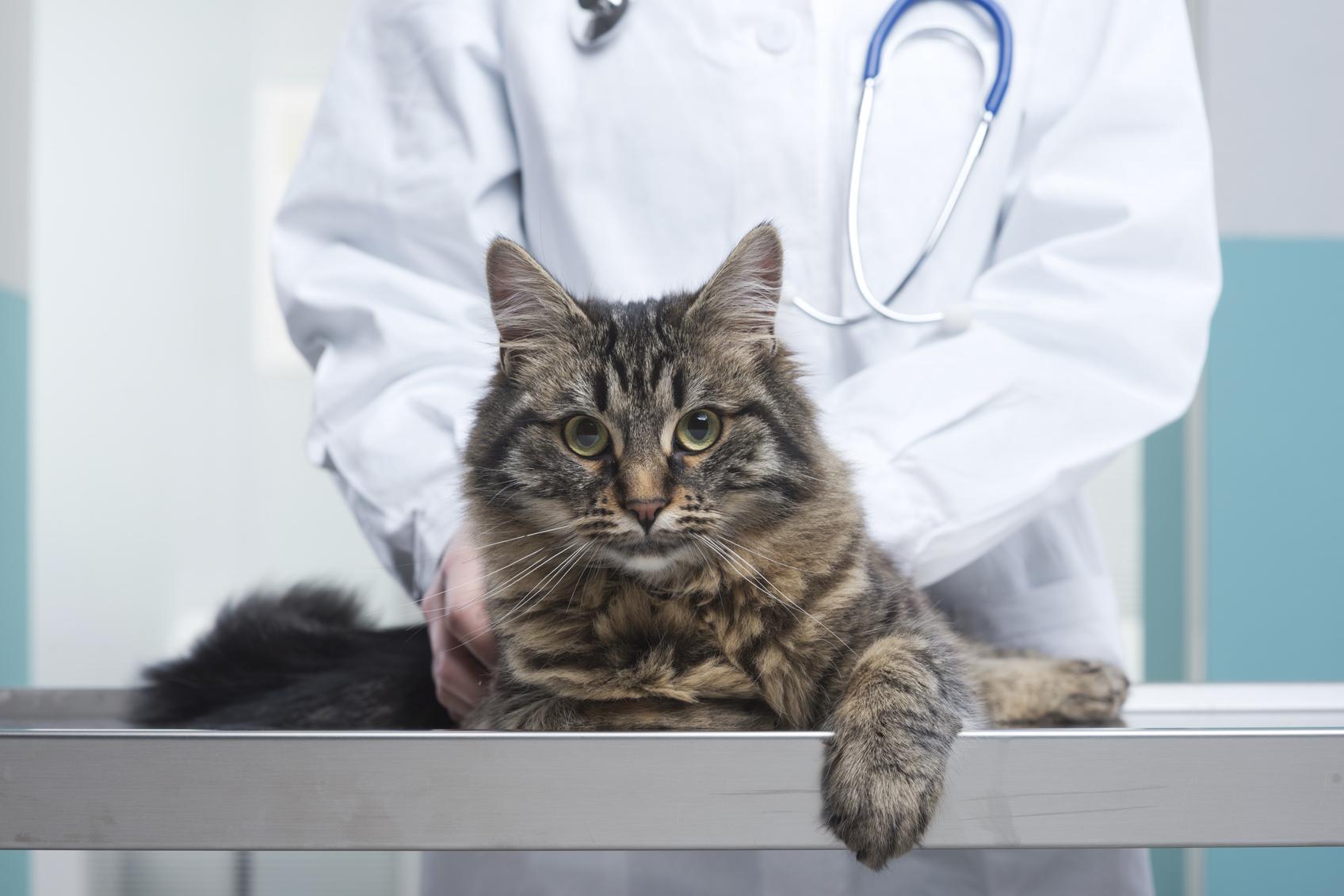Symptoms of Nutritional Deficiencies in Cats

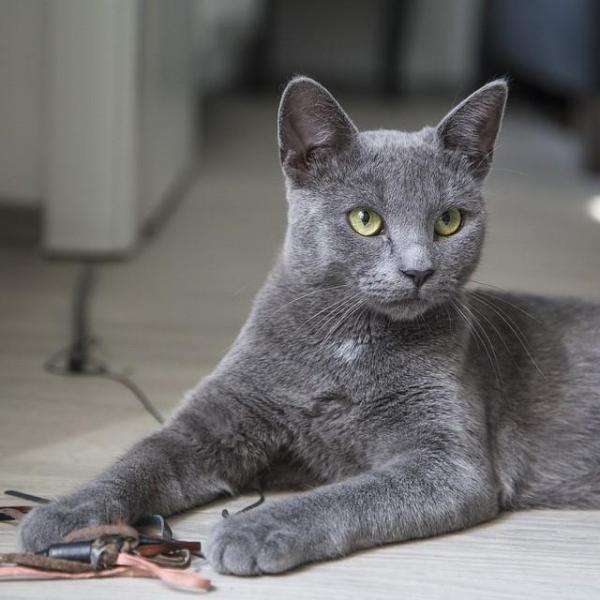

See files for Cats
The continued use of very basic or poor quality cat food can affect your cat's health, causing nutritional deficiencies. When this happens, you will be able to notice various symptoms that appear gradually in your cat, showing that your pet has some kind of nutritional deficiency. These symptoms may also point to a digestive disease or parasites affecting the cat's health.
In order to help you maintain your cat's health, energy and happiness, we at AnimalWised have compiled an article on the different symptoms of nutritional deficiencies in cats.
- Why does your cat have nutritional deficiencies?
- What are the symptoms of nutritional deficiencies in cats?
- Symptoms of food allergies in cats
- Symptoms of carbohydrate deficiency in cats
- Symptoms of protein deficiencies in cats
- Symptoms of lipid deficiencies in cats
- Symptoms of vitamin deficiencies in cats
- Symptoms of trace element deficiencies in cats
- Correcting a nutritional deficit
Why does your cat have nutritional deficiencies?
The most common reason why cats have nutritional deficiencies of some sort is because of an unbalanced diet. Nutritional imbalance is often the result of feeding them low-quality food, which is very basic and does not fulfill all of a cat's requirements to stay healthy and active.
Despite the good will of owners, another type of diet that is too often nutritionally deficient is homemade diets. These homemade diets are usually too high in phosphorus and deficient in calcium, resulting in chronic renal failure.
Another serious error that occurs when cats are given homemade diets is a notable lack of taurine. Taurine is an essential nutritional element for cats to be properly nourished. It is found in beef liver and, to a lesser extent, chicken liver. Here you can find a list of foods rich in taurine for cats.

What are the symptoms of nutritional deficiencies in cats?
In order to detect a dietary unbalance, it is essential to revise the most common symptoms of nutritional deficiencies in cats. You should take note of the following:
- Your cat's coat is not shiny: Their hair appears dull and rough.
- Your cat shows disruptions in appetite: There are episodes of uncontrolled consumption, followed by no interest in eating.
- Your cat has skin disorders: Dermatitis, seborrhea or dandruff are typically caused by nutritional deficiencies.
- There are changes in your cat's stool: Diarrhea or constipation are often associated with nutritional deficiencies.
- Your cat's body weight changes suddenly: Obesity or sudden weight loss are clear signs of poor nutrition.
- Your cat shows unusual behaviors: Poor nutrition causes behavioral changes in the cat.

Symptoms of food allergies in cats
Sometimes cats develop food allergies. These are not excessively common episodes, but when they appear they can be serious. They are usually due to an allergic reaction to a protein of a particular food, which causes an inflammation. Common symptoms of food allergies in cats are:
- Skin problems
- Recurrent otitis
- Vomiting and diarrhea
- Constant trichobezoars
If you think your cat could be suffering from food allergies, we recommend taking them to the vet to get an official diagnosis and identify the source.
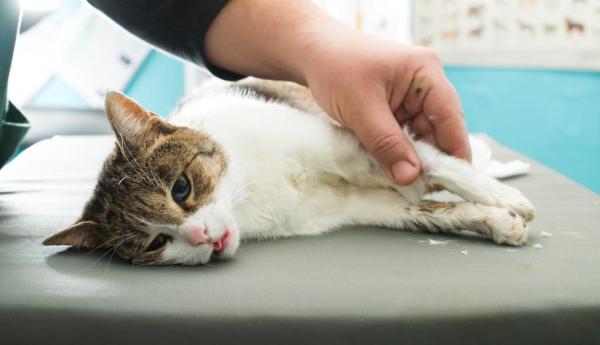
Symptoms of carbohydrate deficiency in cats
Carbohydrates are a macronutrient responsible for the cat's energy balance. If there are any carbohydrate deficiencies, the cat will be listless, weak, without energy and eventually suffer from ketone disorders. The cat'sbreath will smell of acetone.
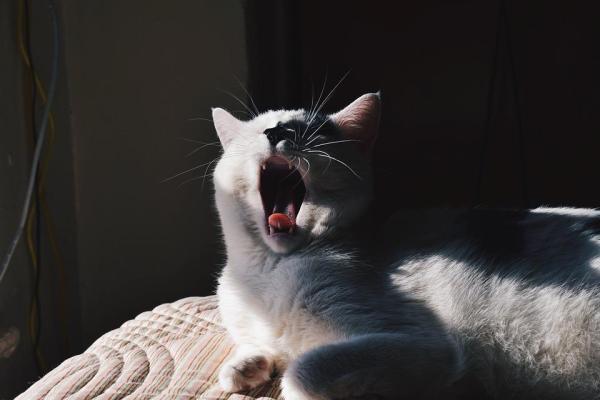
Symptoms of protein deficiencies in cats
If there are protein deficiencies your cat's diet, the animal will suffer from various disorders. Proteins are responsible for regenerating the body structures, forming new tissue, and protecting against infection. White blood cells and the immune system depend on proteins. Common symptoms of a protein deficiency in cats include:
- Developmental disorders
- Loss of muscle mass
- Recurrent infectious diseases
- Abnormalities in the epidermis and coat
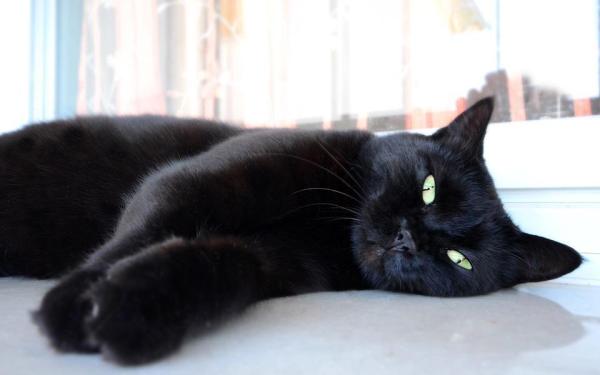
Symptoms of lipid deficiencies in cats
Lipids, that is, fats, are responsible for the creation of essential cell membranes which help protect the cat's organs and transport fat-soluble vitamins. A lipid deficiency causes the following symptoms:
- Weight loss
- Dry coat
- Seborrhea and flaking of the epidermis
- Recurrent infectious diseases
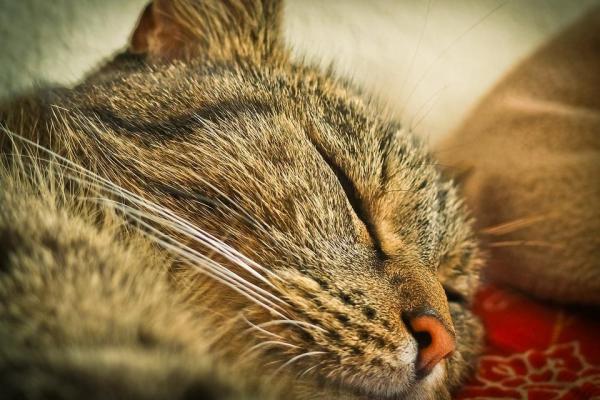
Symptoms of vitamin deficiencies in cats
Vitamins are micronutrients vital for correct chemical reactions in the cat's organism. Vitamin deficiencies cause the following symptoms:
- Dermatitis
- Lack of appetite
- Blood clotting problems
- Low body temperature
- Neurologic abnormalities
- Impoverishment of the coat
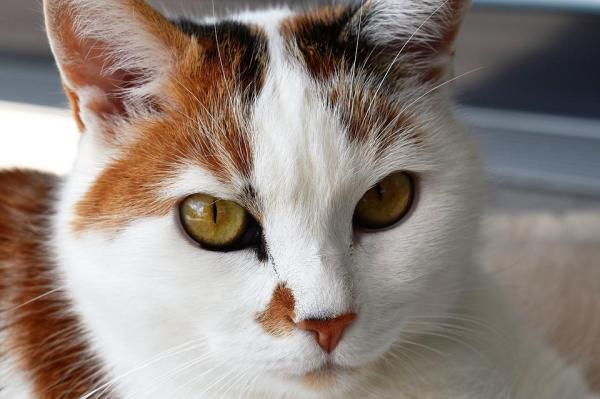
Symptoms of trace element deficiencies in cats
Trace elements are essential minerals that the body needs in order to function correctly. The main symptoms of trace element deficiencies include:
- Anemia
- Weakness
- Stunted growth
- Dry dermis and hair loss
- Alterations in the skeleton and musculature
- Continuous infectious diseases
- Restless nature

Correcting a nutritional deficit
You will have noticed that different nutritional deficiencies can cause similar symptoms. For this reason, if you notice any of these symptoms you will have go to your veterinarian in order to evaluate your cat's health and identify the problem.
Analyses, tests and a thorough examination by the professional will determine a diagnosis and a treatment to rectify the nutritional deficiency and regain your cat's health and dietary balance.

If you want to read similar articles to Symptoms of Nutritional Deficiencies in Cats, we recommend you visit our Diet problems category.







